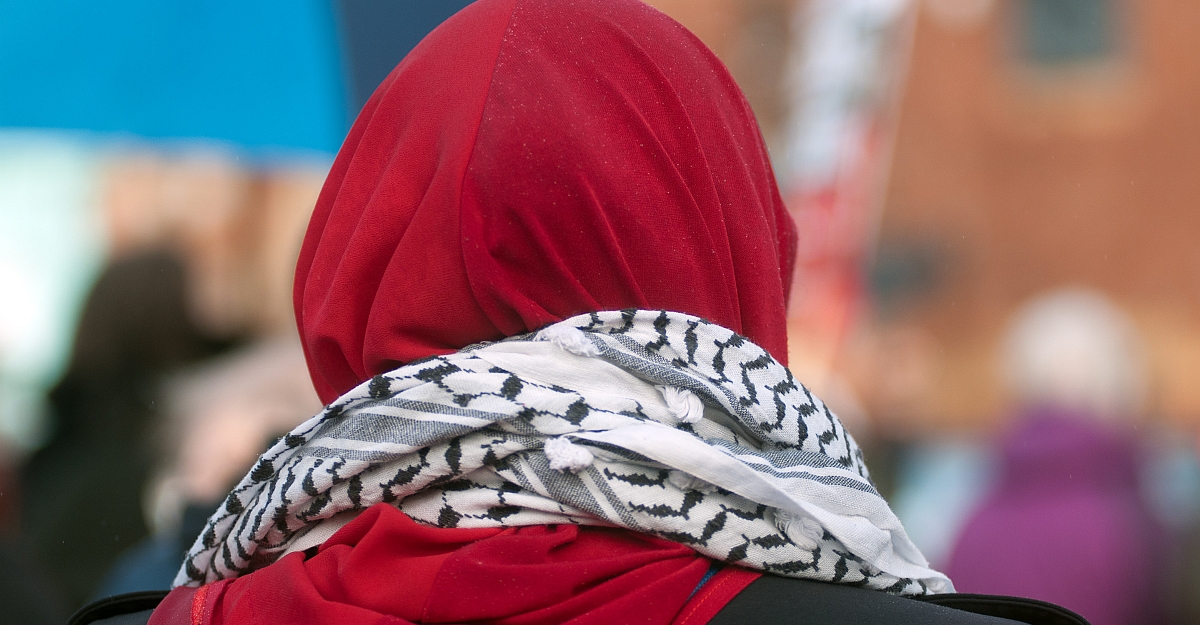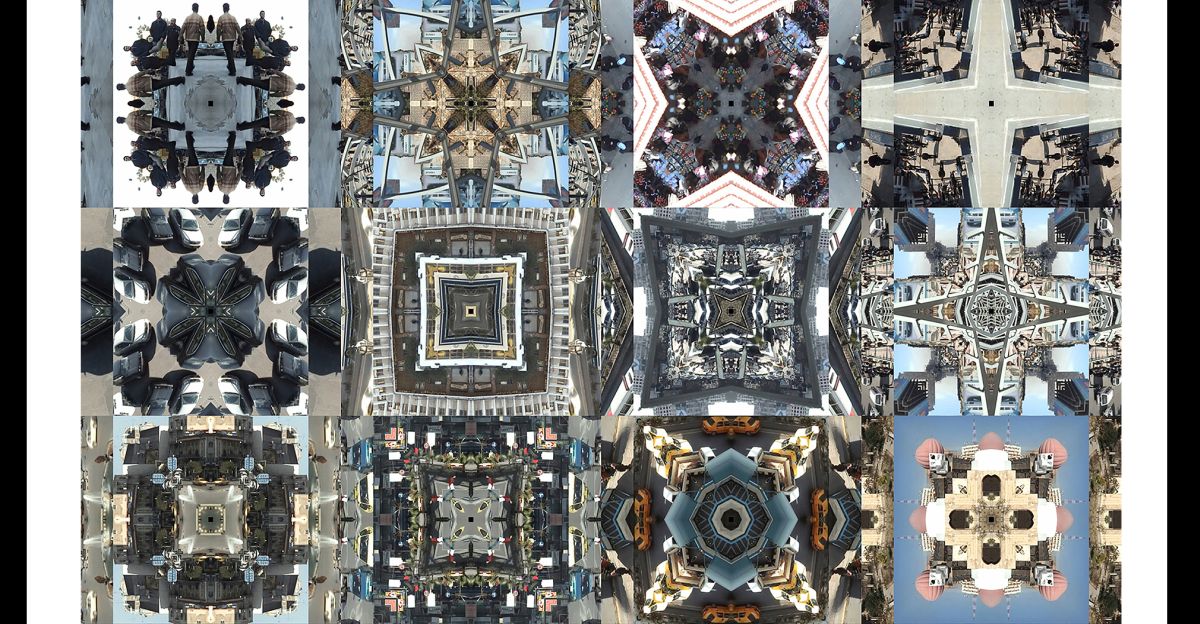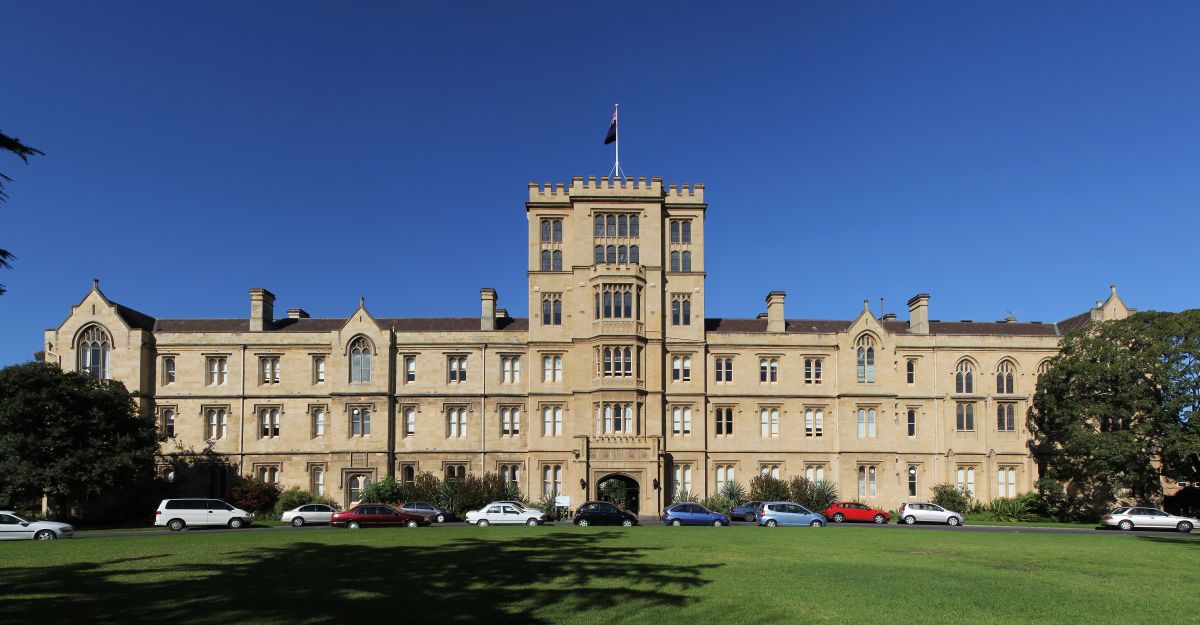In 2009, Twitter was at the centre of something extraordinary: a deluge of posts by young activists from one of the most heavily censored places in the world.
In what became known in English as the ‘Green Movement,’ on June 23, 2009, millions of Iranians poured into the streets demanding their civil liberties. The mass demonstration erupted after the victory of Mahmoud Ahmadinejad in what was perhaps the most publicly contested presidential election in the history of the Islamic Republic. What made the event so unique is that many of these demonstrators had mobile phones and weren’t afraid to use them.
It might seem commonplace now, but at the time, the use of this technology as part of the civil resistance movement — from a place with one of the world’s most extensive government-controlled filtering systems — was in itself revolutionary.
One year earlier, in 2008, I arrived for the first time in occupied Palestine with a suitcase full of audio recorders, headphones, DSLR cameras and editing programs. I was to embark on an English-language podcasting project in collaboration with the Lajee Center inside Aida refugee camp.
Called ‘Radio Lajee’ (‘lajee’ means refugee in Arabic), the initiative aspired to circumvent traditional ‘western’ media narratives and provide Palestinian participants with a direct channel to new audiences. The project resulted in a range of powerful stories covering everything from traditional Palestinian recipes in ‘Amal’s Kitchen’, to creative radio plays like ‘The Cats and the Wall’ about the impact of the apartheid wall on the lives of children in the camp, to stories about dancing Dabke; to heartbreaking confessional testimonies about Israeli violence. The rich and eclectic nature of the work the participants produced was extremely effective not only at showcasing the richness of Palestinian culture but reframing the largely homogenised portrayal of Palestinian people found in western media reporting.
Shortly after the project began, Israel embarked on a twenty-two-day military offensive against the Gaza Strip. The use of white phosphorus and the prolonged bombardment in civilian areas resulted in the deaths of 1400 Palestinians, most of them civilians. Suddenly, three radio interviews that had been lined up with colleagues working for public broadcasters in Australia were cancelled or postponed indefinitely. I was told, ‘it’s just not the right time to air it.’ Or, ‘we had an editorial meeting this morning and we’ve been advised to avoid this topic right now.’ And even the painfully familiar ‘we’re just looking for an Israeli angle … Are there any Israelis involved in this project?’
How could broadcast packages that had already been pre-recorded and were set for transmission be anything but newsworthy at a time when Palestine was all over the news? Keep in mind that these were the editor’s handpicked, usually apolitical snippets from the project — stuff like cooking segments or interviews with a local DJ and MC. Add to the mix that I was an Australian on the ground, a twenty-something media volunteer.
I was just learning something that every media worker knows. As former ABC middle East Correspondent Sophie McNeill stated in a 2021 article for Human Rights Watch,
it’s not that anybody tells you specifically not to cover something, it is just routinely put in the ‘too hard’ basket, with editors fearful of complaints over coverage of the controversial topic.
The censorship is rife and the editorial guidelines surrounding language and ‘balance’ extensive. Editorial balance becomes bothsidesism — where both sides of any story, no matter what the context or the facts show, are presented. Trouble is, this leaves truth open to manipulation by surrogates acting in bad faith and, more importantly, it makes it much harder for ordinary citizens to remain informed.
Journalists are also told that certain words can’t be used to describe geographical locations, organisations and governments. As an example, here in Australia, in 2009, journalists working for SBS were told in an email from their head of news that the station’s Ombudsman had ruled out the use of the phrase ‘Palestinian land’ to describe the occupied territories of East Jerusalem and the West Bank. The memo from the news director explained that the status of these territories ‘remains the subject of negotiation’ and should be described solely with reference to geographical location, for instance: ‘Israeli settlements on the West Bank.’
During the same period, at the ABC — another public broadcaster — the term ‘occupied’ (recognised under international law to refer to the West Bank and Gaza) was regularly set aside for the more ambiguous and — according to international law, incorrect — ‘disputed territories.’ The reluctance to use the adjective ‘occupied’ in relation to the Palestinian Territories is a calculated and politicised decision. In international law, a territory is considered ‘occupied’ when it is placed under the authority of a hostile army; this has been the case in the occupied West Bank, East Jerusalem and Gaza for decades.
It’s perhaps unsurprising to note that here in Australia, these editorial guidelines seem to follow trends mandated by government. For the first time since 2014, Australia’s Department of Foreign Affairs and Trade (DFAT) currently uses the term ‘Occupied Palestinian Territories’. At Parliament House in August this year, the foreign affairs minister, Penny Wong, outlined the position to Labor MPs and senators:
In adopting the term we are clarifying that the West Bank, including East Jerusalem, and Gaza were occupied by Israel following the 1967 war and that the occupation continues and reaffirms our commitment to negotiate a two-state solution in which Israel and a future Palestinian state coexist.
Several Australian media outlets followed suit. Suddenly East Jerusalem, the West Bank and Gaza were no longer disputed territories but occupied territories. When in reality, of course, nothing had changed since 1967.
Since October 7, ABC boss David Anderson has made a ruling against his reporters using the words ‘invasion’, ‘occupation’, ‘genocide’, ‘apartheid’ and ‘ethnic cleansing’ regarding Israeli government policy and allegations made by human rights groups. In a radio interview, Anderson explained that
when it comes to the use of those terms, the ABC won’t report using them ourselves. What we do is report other people using them.
*
When it comes to western news media, it remains necessary for audiences to interrogate the political, social and economic relationships between the country doing the reporting and the countries reported about. Speaking as a media worker guided by universal human rights, integrity and truth, the complicity of the fourth estate in its reporting about Palestine is unacceptable, and is what has ultimately directed my career away from media organisations and into media advocacy and the independent documentary and arts sectors.
I am certainly not alone in this. For years now, countless ethical journalists have campaigned against this misinformation. And several, like Jennine Khalik, have previously lost their jobs because of it. As former Middle East correspondent for The Australian, now ABC Head of Investigations, John Lyons, writes in his book, Dateline Jerusalem: Journalism’s Toughest Assignment.:
This is the story of how the Israeli-Palestinian issue is the single issue which the media will not cover with the rigour with which it covers every other issue.
In late November, 300 Australian journalists called for greater scrutiny of Israel’s defence forces in coverage of the Gaza conflict. The letter urges newsrooms to focus on the human tragedy unfolding, emphasising the significant loss of life in Gaza. The statement provides links to well-respected organisations such as the Committee to Protect Journalists, Reporters Without Borders and the International Federation of Journalists, and cites the importance of approaching Israeli government and military claims with scepticism, pointing out their track record of disseminating misinformation. It goes on to stress that journalists should provide sufficient coverage to credible allegations of war crimes, genocide, ethnic cleansing, and apartheid.
Unsurprisingly, local media organisations have responded strongly to the letter. In a note to staff, Justin Stevens, the director of news at ABC, reiterated that expressing opinions about stories they report on compromises impartiality, and therefore, staff should refrain from signing any petition that could cast doubt on their objectivity or the impartiality of ABC’s coverage. Executive editor of Nine’s newspapers, The Sydney Morning Herald and The Age went further, posting a message to staff on behalf of the papers’ leadership explaining that those who signed the petition would be ‘unable to participate in any reporting or production related to the war.’ The Guardian also advised that staff
should not sign public petitions or open letters about matters that have, or could be perceived to have, a bearing on [the publication’s] ability to report the news in a fair and fact-based way.
When media organisations choose to intimidate and sanction their journalists in this way, it only serves to further delegitimise their coverage of what is taking place in Gaza.
To complicate the picture further, people under the age of thirty don’t get their news from traditional media sources. A survey released by Morning Consult in August 2022, indicated that social media was overwhelmingly the most popular source of news for 18 to 34 year-olds in the United States with 47 per cent of this group using social media for daily news, compared to only 15 per cent for news websites and 9 per cent for network news. The same survey found that people aged 65+ mostly relied on broadcast network news.
These social media platforms are not without their own compromises and editorialising, either. Last month, X owner, Elon Musk said the accounts posting terms like ‘decolonisation’, ‘from the river to the sea’ and other ‘similar euphemisms’ would be suspended. Then there’s the further layer moderation driven by algorithms. As scholars Marten Risius and Kevin Marc Blasiak write for The Conversation:
Tech platforms use recommender algorithms to control society’s key resource: attention. With these algorithms they can quietly demote or hide certain content instead of just blocking or deleting it.
This remains a critical issue for citizen journalists, who still need to rely on social media platforms to distribute their work.
Since 2003, there have been a number of profound moments when this kind of journalism has managed to speak louder than traditional media. Shortly after the invasion of Iraq in 2003, Salam Abdulmunem, a twenty-nine-year-old architect living in Baghdad, created the blog ‘Where is Raed?’ as a way to keep in touch with this best friend, Raed, who was studying in Jordan. Written under the pseudonym ‘Salam Pax’, Abdulmunem used the blog as a diary, providing rare and fascinating insights into the reality and nuances of a war that so many had opposed. His entries were read by millions worldwide and regularly cited by a western news media intrigued by the unique perspectives offered by this mystery blogger.
Social media accounts belonging to Palestinian journalists and content creators in Gaza are gaining enormous attention, many now with millions of followers. This allows their daily reality to reach audiences free of any restrictive editorial guidelines and challenging the western narrative on Palestine in the process. Without these Gazan journalists and content creators, it is unlikely that the world would understand the horrors of this war in the intimate way that we have.
Over the past two months, no foreign reporters have been allowed to enter Gaza. The local journalists and content creators in Gaza are trapped in a dire situation: they alone bear the responsibilities and the burdens of the documentation of this war, whilst simultaneously experiencing the profound pain and losses as victims of the human tragedy unfolding around them.
I am sure I am not alone when I say that I will never forget watching Wael al-Dahdouh, the Gaza Bureau Chief for Al Jazeera’s Arabic Channel, shortly after learning that his wife, fifteen-year-old son, seven-year-old daughter, and grandchild, had been killed by an Israeli airstrike. In footage watched by millions, Wael — in an effort to compose himself — turned his body away from the camera, tears filling his eyes. When he decided to face the audience, his voice broke. The heartbreak was all over him as he listed each and every member of his family who had been taken from him. In spite of his immense suffering, he has remained in Gaza, working tirelessly to provide daily updates.
Other content creators — realising the importance of their skillsets and platforms — have swiftly made the transition to war reporter. Before October 7, twenty-five-year-old Bisan Awda used her social media accounts to challenge stereotypes about Palestinian women. In one of her most famous reels, she dons boxing gloves and urges other women to come and join her at a women’s boxing training facility in Gaza. But that was then. Now, she’s better known for her reporting at the entrance of Gaza’s largest medical facility, the al-Shifa Hospital, just moments before a bomb fell, killing several of the patients inside. Similarly, once upon a time, twenty-year-old Plestia Alalqad made videos about women’s education, but up until late last month used her social media platforms to provide personal vlogs about life under constant bombardment.
Scholars and Poets based in Gaza have also found themselves thrust into the spotlight and cast in the role of citizen journalist. In the case of poet, Mosab abu Toha — who has been writing English-language articles tirelessly since the war began — it’s possible that the connections and advocacy of his (relatively) newfound following, may have contributed to saving his life. His regular Facebook updates deftly described the biggest obstacles and tragic events facing Gazans each day and reading them has become an important ritual for many US diaspora Palestinians, concerned citizens and human rights activists alike. Then, all of sudden, his account went silent. In place of his updates, his profile became awash with distressed messages from his fan-base, begging for information of his whereabouts. After a couple of days, his brother, Hamza, posted an update on his profile. It turns out that a couple of weeks earlier Mosab had filed for his three-year-old son, who is a US citizen, to be evacuated from Gaza. They had received clearance for evacuation so travelled from the north where they lived to the southern border with Egypt, but midway they were intercepted by Israeli forces.
His brother wrote: ‘The army took Mosab when he arrived at the checkpoint, leaving from the north to the south, as the army had ordered.’
News of Mosab’s abduction led to a massive outcry from western media companies and publishers including the New Yorker, and international rights groups like PEN International. These noisy and relentless international campaigns over Mosab’s detention and unknown whereabouts, are likely to have contributed to his release.
On 24th November, Mosab appeared on Facebook once again, writing:
I’m safe but I still have severe pain in my nose and teeth after being beaten by the Israeli army last Sunday. I gave them all my family’s passports, including my American son’s passport but they didn’t return anything to me. Also my clothes and my children’s were taken and not returned to me. No wallet, no money, no credit cards. Everything was confiscated. I’m in pain.
At school, journalists are taught impartiality, they are trained to cover stories objectively to avoid descriptive personal language. As audiences, we watch the reports these media professionals provide with a sense of separation and removal. We are always aware that they are performing a role and providing a service and it is this feeling of distance that can also create a buffer between us and the story. Journalists are expected to describe events in a way that is deliberately devoid of their personal experience or perspective. They are supposedly impartial bystanders looking on. The emotion — if there’s any — comes from the selected soundbites of the actors featured in the story.
Citizen journalists do not have this luxury. They are the news they report upon.
In a recent essay, Darumbal and South Sea Islander journalist, Amy McQuire argues that western journalism’s notions of ‘objectivity’ and ‘balance’ are rooted firmly in colonial systems that are orientated towards those in authority. She writes:
Palestinian voices can not speak the truth of a 75-year occupation, and 16-year seige on Gaza, without first being asked questions about whether they condemn Hamas, or Palestinian resistance at all … The bravery of Palestinian journalists is juxtaposed by the shameful timidity of Australian journalists, who are so weak-kneed that they cower, not from airstrikes, but on whether to call Israel’s deadly assault on Gaza a ‘genocide’.
While the toll on these local journalists is unfair and extreme, the heartbreaking reality is that their tireless labours remain critical to their survival.
I am writing this days after the United States has vetoed a United Nations Security Council demand for an immediate humanitarian ceasefire. A vote which came after Guterres deployed the rarely-used Article 99 of the UN Charter to bring to the council’s attention ‘any matter which, in his opinion, may threaten the maintenance of international peace and security. ’ In this grave humanitarian situation where the safeguards that our world has put in place — the frameworks of international humanitarian law and the practical influence of the UN — are powerless against geopolitical and economic interests, and western journalism is still not at a point where the reality of Israel can be discussed, human connection has never been more vital in this fight for truth and justice.
The work that Gazan media workers and content creators produce disseminates so much more than information. Their eyewitness reports contain a truth and urgency capable of forging personal connections with diverse audiences stationed across the world. Through their relentless work covering their uncensored suffering, Gaza’s citizen journalists are winning the information war and, increasingly, our overwhelming solidarity and action.
Image: Tim Dennell



